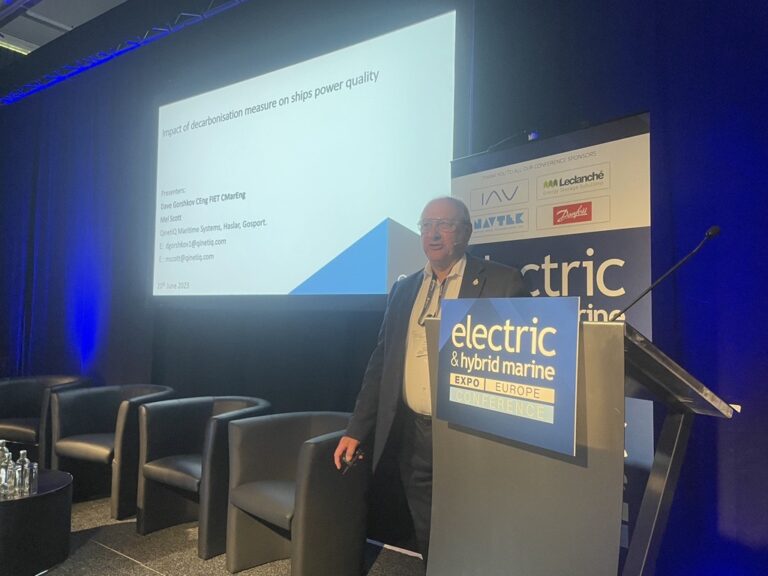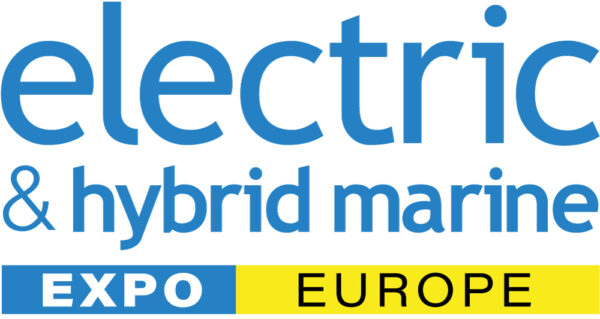The first morning of the conference running alongside this year’s Electric & Hybrid Marine Expo included a thought-provoking presentation questioning the impact of decarbonization measures on ships’ power quality.
Delivered by QinetiQ’s electrical power and propulsion subject matter expert for maritime systems, Dave Gorshkov, the presentation examined the energy efficiency steps ship operators are taking toward a greener future for the shipping industry, including cruises and ferries, gray ships, commercial vessels and ports, and how these are now affecting ships’ power quality (PQ) and total harmonic distortion (THD) levels. Gorshkov identified some of the concerns that operators need to be aware of when implementing decarbonization and energy reduction solutions using variable-frequency drives (VFDs), LEDs, etc, and how they may negatively affect class rules for limits of THD and associated damage to the ships’ electrical systems.
“Many shipowners and operators are looking at the forthcoming IMO2030 and indeed IMO2050 regulations as a bit of a challenge,” said Gorshkov. “Some owners are moving to various solutions to reduce energy usage while not really appreciating that the very solutions they are introducing to reduce energy use, GHG and costs are in fact potentially damaging their ships’ systems and introducing additional opex to repair damage done via some of these energy-saving solutions. Owners and operators also need to be mindful of ‘class limits’ for THD, which they need to maintain at certain levels for the safety of the vessel – THD can cause significant damage if not kept under review.”
For more on QinetiQ, please click here.




